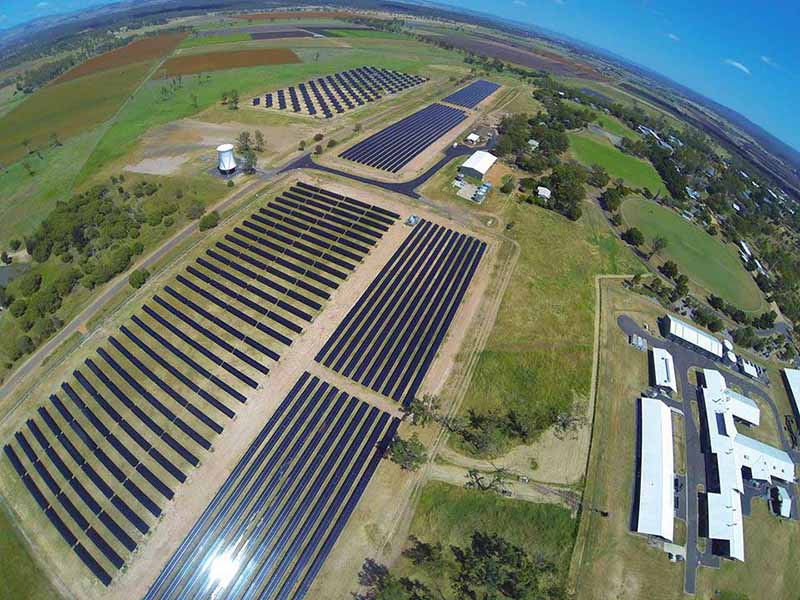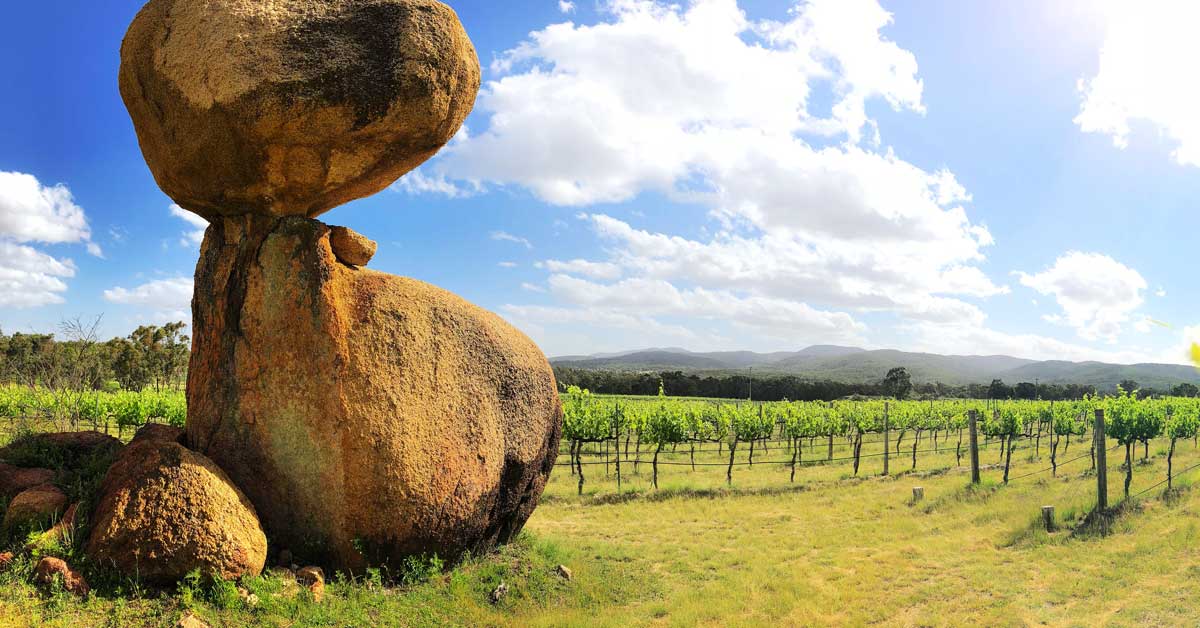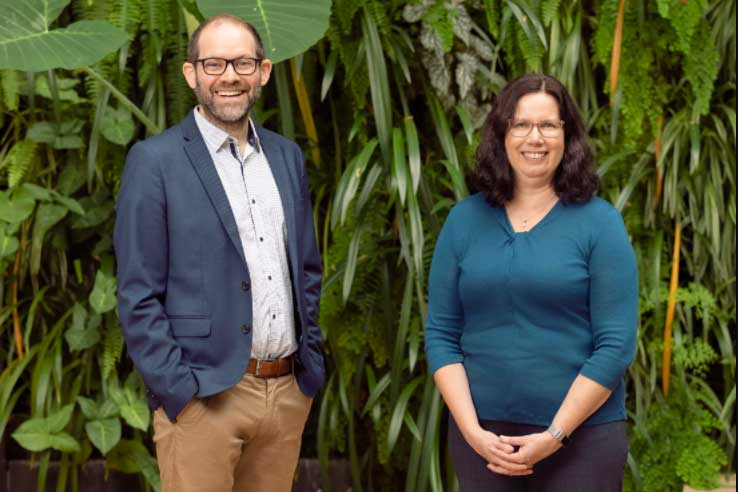Landholders can earn income by using their land to deliver environmental offsets, however lack the knowledge to take advantage of the benefits available to them.
In partnership with the Rural Economics Centre of Excellence, our researchers consulted some growers about their current practices and barriers to their investment in offsetting. Specifically, their focus was Queensland’s Granite Belt region and ways to boost uptake of environmental offsetting practices by local winegrowers.
Clarity around offsetting practices needed
Our investigators, Associate Professor Ian MacKenzie and Associate Professor Lana Friesen, found that providing growers with relevant case studies and information on the costs and benefits of these practices could encourage uptake.
Lead investigator Dr MacKenzie said offsetting practices and technologies in the region included mulching, cover cropping, reducing chemical spraying and installing solar panels.

Benefits of environmental offsets
“These practices have dual benefits – they improve biodiversity and curb emissions while giving farmers another source of revenue,” he said. However, Dr Friesen said the winegrowers they spoke to were reluctant to invest in offsetting practices.
“They told us they aren’t participating – not because they don’t want to, but because the information they’re getting is complex and unclear,” Dr Friesen said.
“Agribusiness owners lack knowledge about what’s available to them, particularly around the costs and benefits of offsetting practices.
“They don’t have the time or resources to figure it out; they’re simply trying to survive.”

Making offsets attractive to individual farmers
Based on the survey results, the team designed and conducted a field experiment with their research assistant, former economics honours student and University medallist, Jo Auer. Ms Auer held detailed interviews with 18 local winegrowers and used case studies to measure how information affected their offset investment decisions. The results showed that giving winegrowers clear information about the environmental and financial costs and benefits of offsetting practices – no matter whether that information came from the government or peers – increased their willingness to invest.
“Once we provided more information, we noticed a statistically large improvement in their adoption of hypothetical sustainable practices,” Dr MacKenzie said.
“We did find that their willingness to invest might be affected by business size – for instance, investment was higher among larger winegrowers.”
Seminal approach
Director of RECoE Associate Professor Ben Lyons said Dr MacKenzie and Dr Friesen were leading a “central discussion” for regional and rural Australia.
“We value their innovative approach to making environmental offsets attractive to individual farmers, effectively demystifying a very new idea in Australian agriculture,” Dr Lyons said.
“No one has ever done large-scale experiments in this space, particularly not in Australia.
“This is seminal work that will be ongoing in its impact, and we will continue to build on it.”
The researchers said their experimental economics approach meant they could control variables and focus on specific aspects that partners wanted to investigate.
“By designing field or lab experiments and applying our state-of-the-art economic modelling tools to real-life scenarios, we can help with decision-making that has a positive impact,” Dr MacKenzie said.
“Innovation in agribusiness is starting to happen, but we must focus on designing environmental policy that clearly communicates the costs and benefits of offsetting practices,” Dr Friesen said.
“In doing so, we can reduce Australia’s climate footprint and improve the resilience of the agriculture industry.”
Their findings will reach policymakers and key agribusiness stakeholders across Queensland.
The research project received financial backing from Rural Economics Centre of Excellence, which is funded by the Queensland Department of Agriculture and Fisheries. The Centre is a research collaboration between four Queensland universities – UQ, University of Southern Queensland, James Cook University and Central Queensland University.
Other current UQ and Rural Economics Centre of Excellence collaborations include projects on energy transitions for rural and regional Queensland and the tourism and wine industries’ contributions to the regional economy.
Off the back of this research, Dr MacKenzie and Dr Friesen have received a $150,000 grant from AgriFutures – together with Dr Phillip Currey from Southern Queensland Landscapes – to investigate carbon offsetting pathways for small farmers.
They will continue to explore questions around offsetting through future projects.
Contact
Contact Dr Ian MacKenzie or Dr Lana Friesen to discuss a research partnership over environmental offsets for agriculture.




